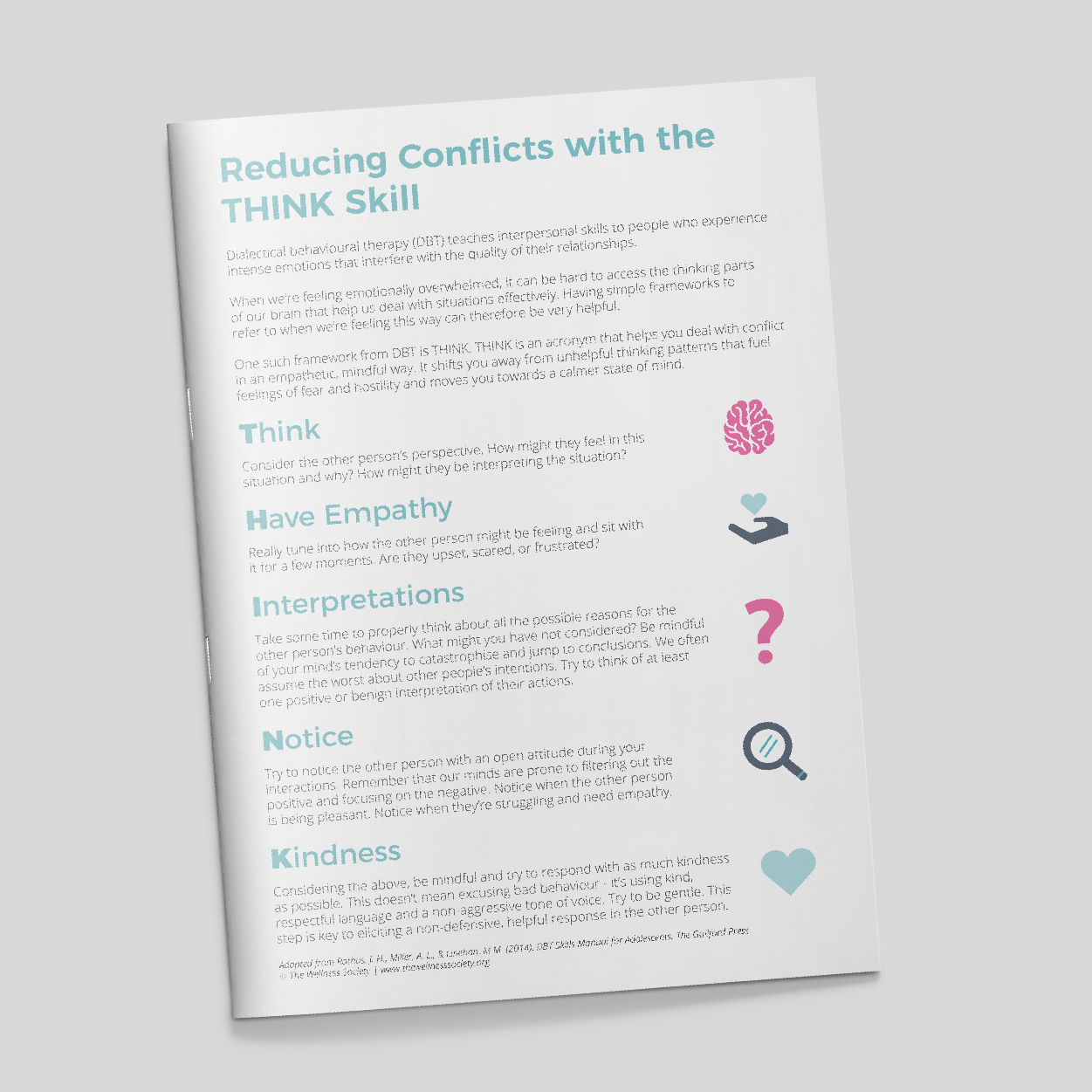Dialectical behavioural therapy (DBT) teaches interpersonal skills to people who experience intense emotions that interfere with the quality of their relationships.
When we’re feeling emotionally overwhelmed, it can be hard to access the thinking parts of our brain that help us deal with situations effectively. Having simple frameworks to refer to when we’re feeling this way can therefore be very helpful.
One such framework from DBT is THINK. THINK is an acronym that helps you deal with conflict in an empathetic, mindful way. It shifts you away from unhelpful thinking patterns that fuel feelings of fear and hostility and moves you towards a calmer state of mind.
1. Think
Consider the other person’s perspective. How might they feel in this situation and why? How might they be interpreting the situation?
2 Have Empathy
Really tune into how the other person might be feeling and sit with it for a few moments. Are they upset, scared, or frustrated?
3. Interpretations
Take some time to properly think about all the possible reasons for the other person’s behaviour. What might you have not considered? Be mindful of your mind’s tendency to catastrophise and jump to conclusions. We often assume the worst about other people’s intentions. Try to think of at least one positive or benign interpretation of their actions.
4. Notice
Try to notice the other person with an open attitude during your interactions. Remember that our minds are prone to filtering out the positive and focusing on the negative. Notice when the other person is being pleasant. Notice when they’re struggling and need empathy.
5. Kindness
Considering the above, be mindful and try to respond with as much kindness as possible. This doesn’t mean excusing bad behaviour - it’s using kind, respectful language and a non-aggressive tone of voice. Try to be gentle. This step is key to eliciting a non-defensive, helpful response in the other person.

